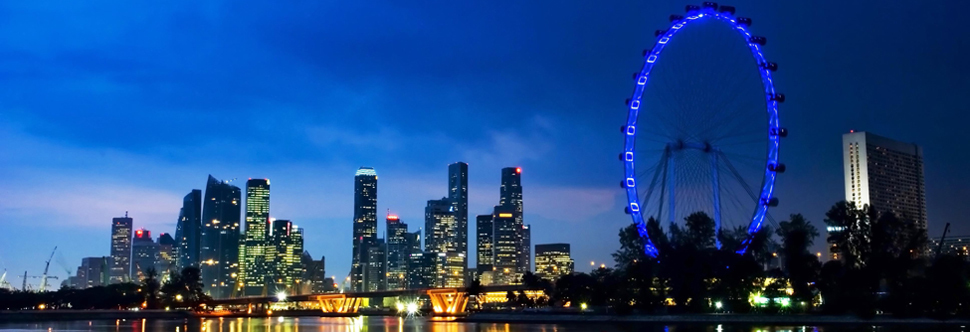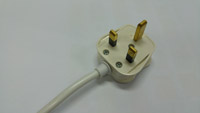About Singapore

Climate
Rain falls throughout the year, with more rain coming during the monsoon season from November to January. Showers are usually brief and heavy, yet refreshing.
Culture
A) People
Unity in diversity is the philosophy of this cosmopolitan city. Although geography has played a part in the success of Singapore, its mainstay is its people. Lacking natural resources, Singapore’s strength is its hardworking, adaptable and resilient population.
Singapore has a population of 5.54 million people, comprising Chinese, Malays, Indians and Eurasians and people of other descent. The original inhabitants were Malay fishermen, but after the arrival of Sir Stamford Raffles and the establishment of a British trading post, Singapore became a magnet for migrants and merchants. Seeking a better life for themselves and their families, they came from the southern provinces of China, Indonesia, India, Pakistan, Ceylon and the Middle East. Though inter-marriages have taken place over the years, each racial group within Singapore has retained its own cultural identity while developing as an integral part of Singapore community.
B) Language
There are four official languages in Singapore: Malay, Mandarin, Tamil and English. English is the official language of business and administration, and is widely spoken and understood. Most Singaporeans are bilingual, conversing in both their mother tongue and English. Malay is the national language.
C) Religion
With its ethnic mix also comes its diverse set of religions. Singapore’s skyline boasts the distinctive minarets of mosques, spires of gothic cathedrals, intricate figurines of Hindu temple gods and distinctive roof architecture of Chinese temples. The main religions are Buddhism, Christianity, Hinduism, Judaism, Islam, Sikhism, Taoism
Visitor Information
A) Transportation
Bus
Buses operate from 6 am to 12 midnight daily, and come at frequent intervals. Bus numbers and routes serviced are displayed at each bus stop. The bus fare can be paid using either coins (exact fare only) or an EZ-Link Card. For more information on bus routes, call the TransitLink hotline at 1800-7674333, or visit www.sbstransit.com.sg or www.smrt.com.sg.
SBS Bus Services & Timetable can be seen at :
http://www.sbstransit.com.sg/transport/trpt_bus_timetable.aspx
SMRT journey planner can be seen at http://journey.smrt.com.sg/
Mass Rapid Transit (MRT)
The air-conditioned passenger train service is the fastest way to get around the island. The lines comprise of the North-South line, the East-West line, the North-East line, the Circle line and the Downtown line. Trains operate at intervals of between two and a half minutes and eight minutes from 5:30 am until 12:30 am daily. Train fares are paid using the EZ-Link Card or a standard ticket sold at dispensing machines at every MRT station.
The nearest MRT station to NUS High School of Math & Science is Clementi Station (EW23).
EZ-Link Card
The EZ-Link Card is a contactless smart card used to pay for MRT and bus fares. The card may be bought or revalued at any TransitLink Ticket Sales Office located in most MRT stations and bus interchanges. Each adult card is sold with a minimum value of S$10 plus a deposit fee of S$5.
More information can be seen at : http://www.transitlink.com.sg/
B) Communication
Postal Services
Singapore Post outlets offer a wide range of postal, telecommunication and agency services. Most postal outlets are open on Monday to Fridays: 8:30 am to 5 pm and Saturdays: 8.30am to 1 pm. The cost is 30 cents for a local letter and 60 cents for an aerogramme to any part of the world.
More information can be seen at : http://www.singpost.com/
C) Other Information
Banking and Financial Services
The local currency is Singapore dollars and cents. Brunei currency is acceptable at par with the Singapore currency. Banking hours are on Mondays to Fridays: 10 am to 3 pm and Saturdays: 9:30 am to 1 pm.
Most banks handle travellers’ cheques and change foreign currencies. However, some banks do not have foreign exchange dealings on Saturdays. Passports are required when cashing in travellers’ cheques. A nominal commission may be charged. Other than the Singapore Dollar, the US, Australian and Brunei Dollars, the Japanese Yen and the British Pound are also accepted in most major shopping centres and big departmental stores.
Apart from banks and hotels, money can be changed wherever the sign “Licensed Money Changer” is displayed. Most shopping complexes have a licensed money changer. Visitors are discouraged from changing money with unlicensed money changers.
Credit/Charge Cards
Major cards are widely accepted by establishments in Singapore. Should any shop insist on adding a surcharge, contact the respective card company to report the errant shop-owner.
American Express
Tel: 1800-2991997
Diners Card
Tel: +65-64160800
JCB
Tel: 001-800-3865-5486
UnionPay
Tel: 800-860-0028
MasterCard
Tel: 800-1100113
Visa
Tel: 800-4481250
Power Plug
The standard electrical current used in Singapore is 220-240 volts AC (50 cycles) and you can use power plugs with three square prongs here.

Drinking Water
It is perfectly safe to drink water straight from the tap in Singapore.
Medical Facilities
Singapore’s medical facilities are among the finest in the world, with well-qualified doctors and dental surgeons. Pharmacies are ready available at supermarkets, department stores, hotels and shopping centres. Registered pharmacists generally work from 9am to 6pm. Most hotels have their own doctor on-call around the clock.
Tipping
Tipping is not practised as most hotels and restaurants in Singapore already levy a 10% service charge on customers’ bills.
D) Useful Telephone Numbers
Police
999 (toll-free)
Ambulance/Fire Brigade
995 (toll-free)
Singapore Tourism Board (24-hr automated tourist information system)
1800-7362000
Flight Information
1800-5424422
Weather
+65-6542-7788
For more information, click here to download the pdf about singapore or have a look at Visit Singapore

